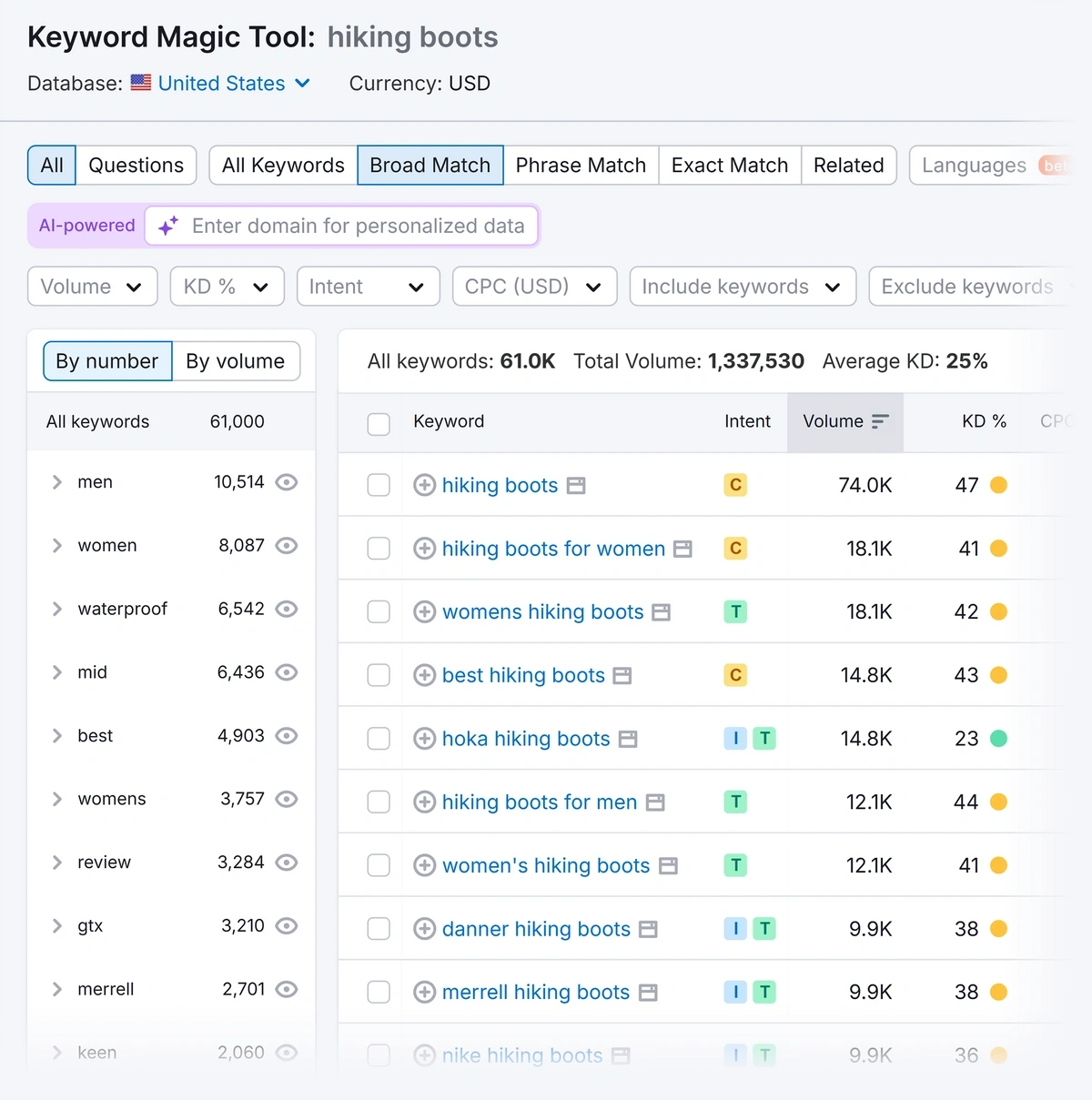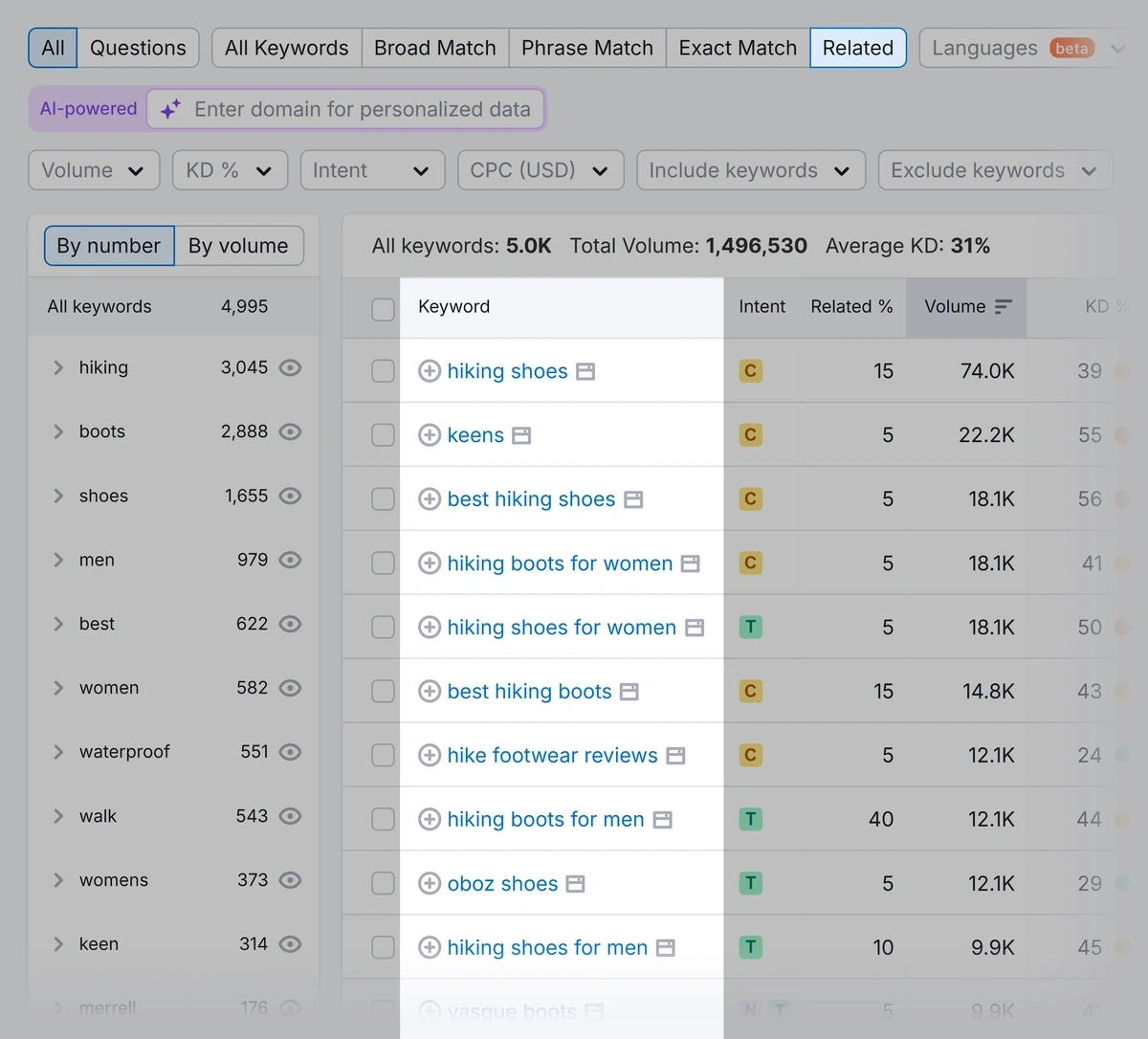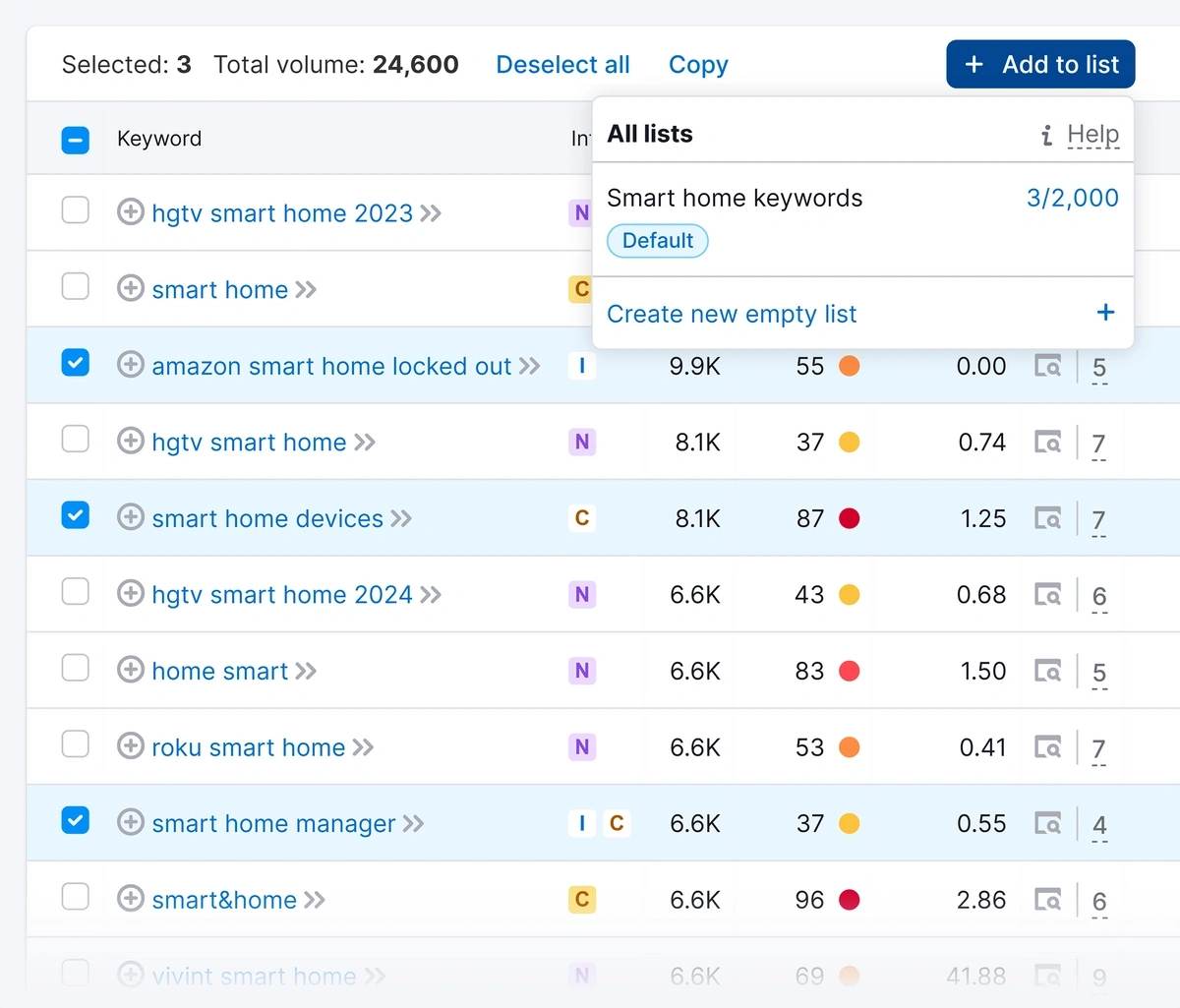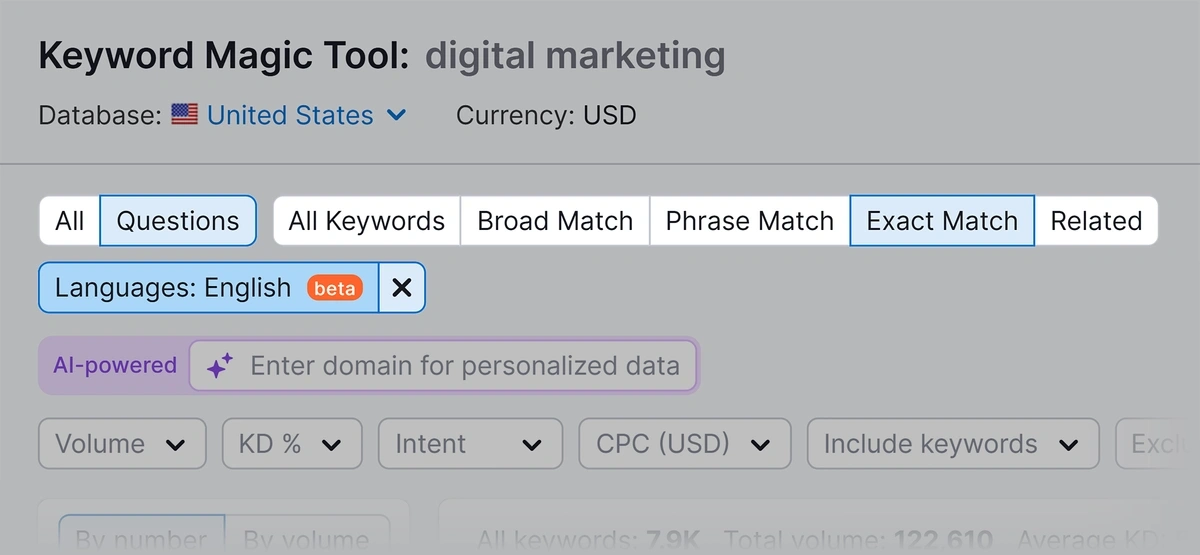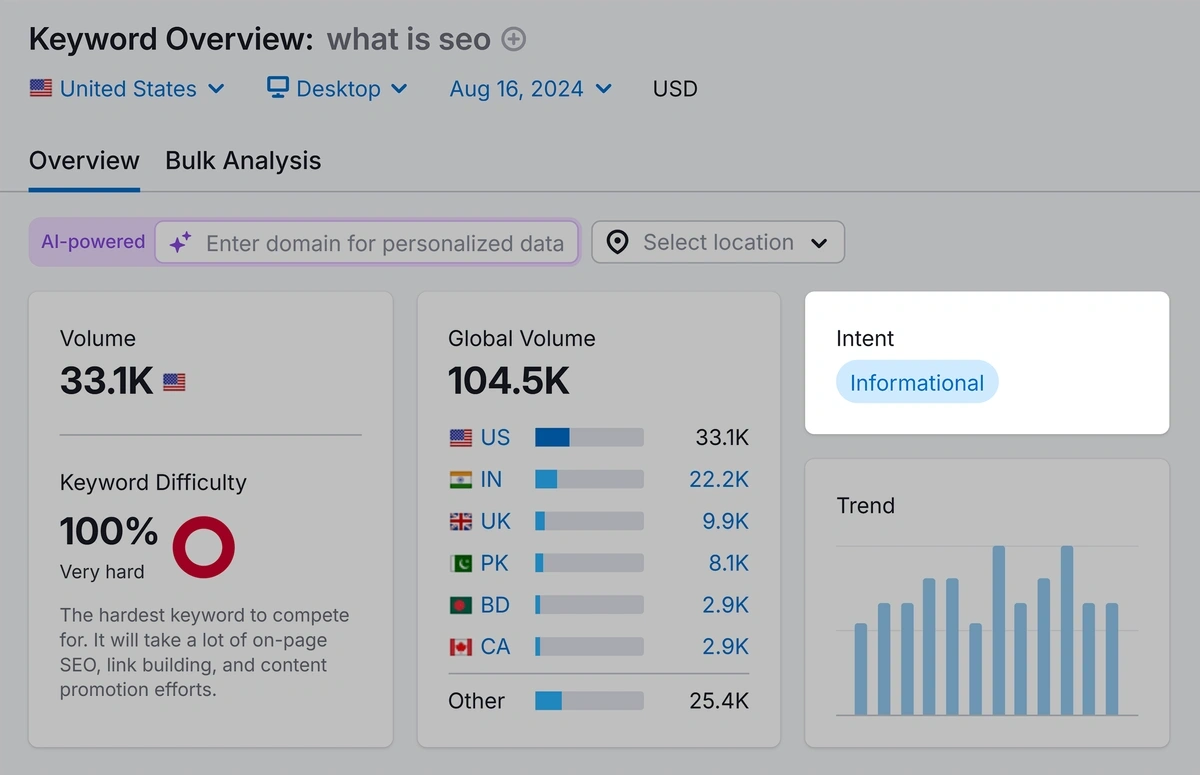Get Advanced Insights on Any Topic
Discover Trends 12+ Months Before Everyone Else
How We Find Trends Before They Take Off
Exploding Topics’ advanced algorithm monitors millions of unstructured data points to spot trends early on.

Keyword Research
Performance Tracking
Competitor Intelligence
Fix Your Site’s SEO Issues in 30 Seconds
Find technical issues blocking search visibility. Get prioritized, actionable fixes in seconds.
Powered by data from
How to Find Related Search Terms the Easy Way
A keyword generator is a tool that takes a word or phrase about your business and produces a list of related search terms.
Keyword tools take the guesswork out of knowing what people type into search engines.
For example, if your customers search for "hiking boots,” a keyword generator will reveal relevant keywords like:
- "waterproof trail shoes"
- "lightweight mountain boots"
- "all-weather hiking footwear"
Each word or phrase helps identify hundreds of terms.
You can then enrich your content, which makes it easy for search engines to understand.
The more effectively you cover a topic, the more likely it is that you’ll achieve higher rankings in each results.
See our Keyword Research Guide for a complete walkthrough on finding great keywords.
How Keyword Generation Works
Use Semrush keyword generator to find related terms that relate to your business.
Start with 3-5 seed terms. These are important words that describe what you offer.
For each seed word or phrase you enter, the generator shows:
- Monthly search volume and trends
- Keyword difficulty scores based on competition
- Current SERP features like snippets, People Also Ask, and other special areas of search engine results pages (SERPs).
- Related keywords, long tail keywords, and variations
Get More Search Traffic
Use trending keywords to create content your audience craves.
1. Enter Seed Terms
Open Semrush and navigate to the Keyword Magic Tool.
Enter 3-5 seed terms that describe your product or service.
For example, if you’re a digital marketing agency, seed keywords might include “digital marketing,” “SEO,” or “content strategy.”
Semrush will show you a list of keyword suggestions.
You can then:
- View the monthly search volume to gauge popularity.
- Review trends to identify terms with seasonal or increasing interest.
- Check the Keyword Difficulty (KD) score provided for each term.
High KD scores indicate competitive terms. If you don’t have high domain authority, consider terms with low to moderate difficulty to improve your ranking potential.
In Semrush, you can explore the “Related Keywords” and “Keyword Variations” sections for more ideas.
Use filters to refine the suggestions based on volume, difficulty, or keyword intent.
2. Save and Organize Keywords
Semrush makes it easy to save the best keyword ideas.
This is useful for ongoing tracking and analysis, or to make a note of keywords you may want to dig into later.
To organize your keywords:
- Select the keywords you want to save by checking the boxes beside each term.
- Click “+ Add to Keyword List” to save them in an existing list or create a new one.
3. Explore Keyword Filters
Unlike basic keyword generators, Semrush offers specific filters to refine your results:
- Search Volume Range: Show terms with minimum monthly searches. Most sites see better results targeting popular keywords. These are terms with at least 100 monthly searches.
- Keyword Difficulty: The generator scores terms from 0-100 based on ranking difficulty.
- Word Count: Use this filter to find longer, more specific phrases.
Understanding Search Intent
Search intent is crucial when generating keywords.
Targeting the right intent ensures your content matches the terms that are most likely to lead to a purchase.
The Semrush Keyword Generator makes this simple. It groups terms by searcher goals.
There are 4 main intent categories to look out for.
Informational keywords
These are terms that can attract users looking for knowledge, guidance, or data.
Informational keyword examples:
- "how to measure for curtains"
- "types of house foundations"
- "best time to plant tomatoes"
Content addressing these types of queries is often called “top of funnel” content, in reference to the marketing funnel.
Create content for informational keywords to draw users early in their purchase journey.
Commercial Keywords
Commercial terms are usually related to product research.
They help users evaluate different products or services, including yours.
Examples include:
- "memory foam vs spring mattress"
- "top rated dishwashers 2024"
- "compare web hosting plans"
Typically, searchers use commercial investigation keywords when they have a good idea of what they want. When potential customers are narrowing down their options, you need to be part of that conversation.
Transactional Keywords
When someone is ready to buy—or perform some other transaction—they use search terms indicating their goal.
Some transactional term examples are:
- "buy ergonomic office chair"
- "schedule home inspection"
- "book hotel in miami"
The best place to target transactional search queries is in product descriptions and landing pages. Couple your content with strong calls to action (CTAs) that drive users toward conversion.
Using Keywords in Content Planning
Now that you have a list of keywords from your keyword generator tool, you can build a content plan.
When planning content creation:
- Group related generated keywords into clusters and cover the entire group in one piece of content.
- Find topics your site hasn't covered, but which competitors rank for, so you can fill the gaps.
- Identify existing content that needs optimization based on the related terms you found.
You can use the Semrush SEO Content Template to create briefs. Giving writers a brief before they start will ensure your content targets the right keywords and audience.
Generate Great Keywords with Semrush
Finding effective keywords that draw in the right visitors is crucial to website growth.
It can also help you increase conversions, generate sales, and expand your business.
Try the Semrush keyword generator today to find the terms that will reach your audience.
Stop Guessing, Start Growing 🚀
Use real-time topic data to create content that resonates and brings results.
Exploding Topics is owned by Semrush. Our mission is to provide accurate data and expert insights on emerging trends. Unless otherwise noted, this page’s content was written by either an employee or a paid contractor of Semrush Inc.
Share
Newsletter Signup
By clicking “Subscribe” you agree to Semrush Privacy Policy and consent to Semrush using your contact data for newsletter purposes



